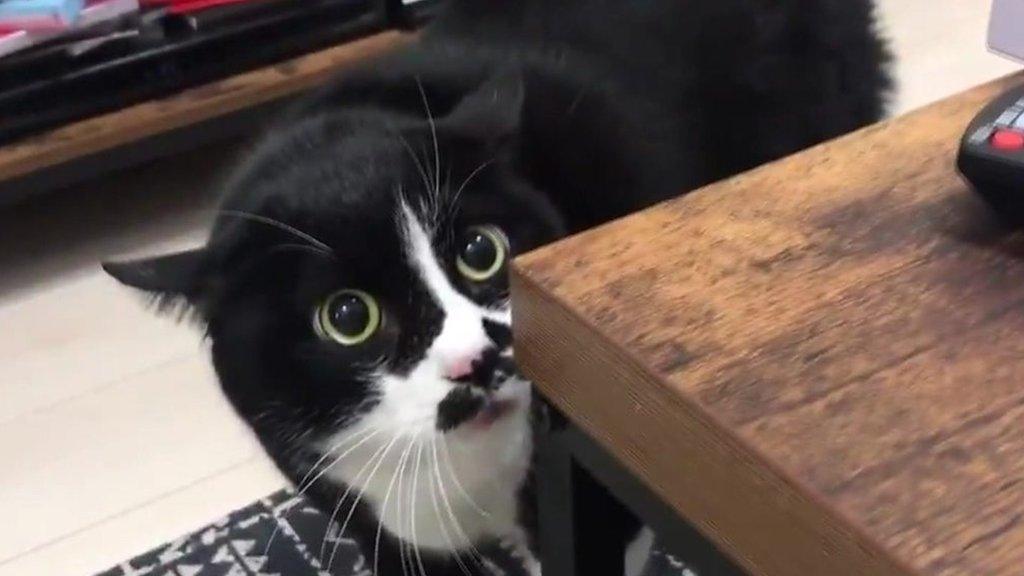All cats in UK will have to be microchipped under new rules
- Published
- comments
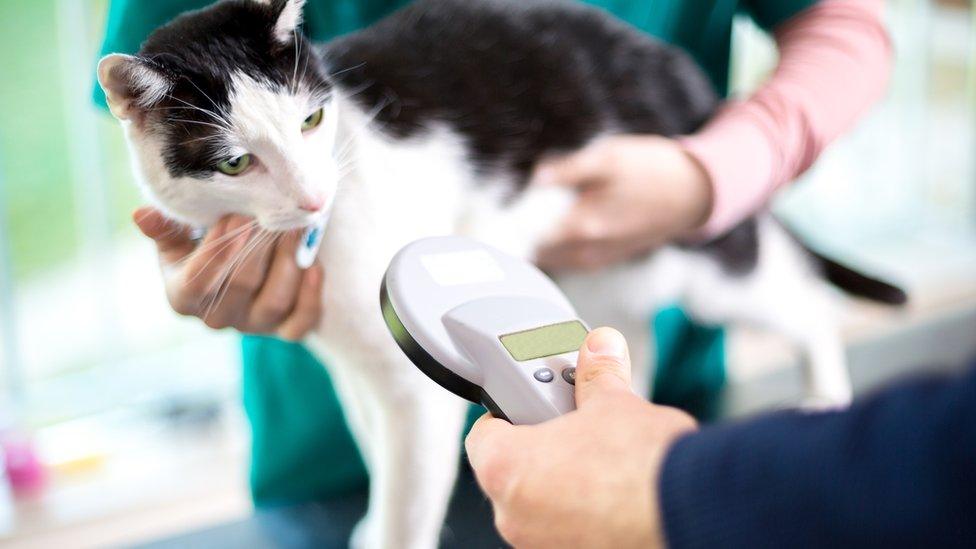
The government is set to introduce new rules saying that all pet cats in the UK must be microchipped by the time they are 20 weeks old - the equivalent of five months.
It will mean lost or stray pet cats are more likely to be reunited with their owners and returned home safely.
The change comes after a people were invited to give evidence and discuss the matter, with 99% of people giving their support for the measure.
Owners found not to have microchipped their cat will have 21 days to have one implanted, or could face a fine of up to £500.
There are more than 10.8 million pet cats in the UK, with as many as 2.8 million unchipped, meaning that it would be very difficult to return pets to their owner if they get lost or stolen.
Eight out of 10 stray cats coming into Cats Protection's centres are not microchipped.
Watch Daniel and Casper's story and see how a microchip works
The introduction of compulsory cat microchipping was something the government had promised to do before the last election if it stayed in power.
It will form part of its Action Plan for Animal Welfare but won't be brought in straight away.
A microchip is a small device, about the size of a grain of rice, that is implanted into the pet typically between their shoulder blades. The procedure is usually painless for the animal.
When a lost pet is found, the microchip can be scanned and it will bring up the owner's details from a database.
The vet or agency who have the lost pet will then be able to contact the owners and organise for it to be returned or collected.
All dogs in England, Scotland and Wales have had to be microchipped by law since 2016 unless a vet says they can have one for health reasons.
There is also a review looking into the current rules on microchipping for dogs to see if improvements can be made, so the government will wait to see what this finds so any changes for both cats and dogs can be introduced at the same time.
UK's leading cat charity Cats Protection had been campaigning for compulsory microchipping of pet cats.
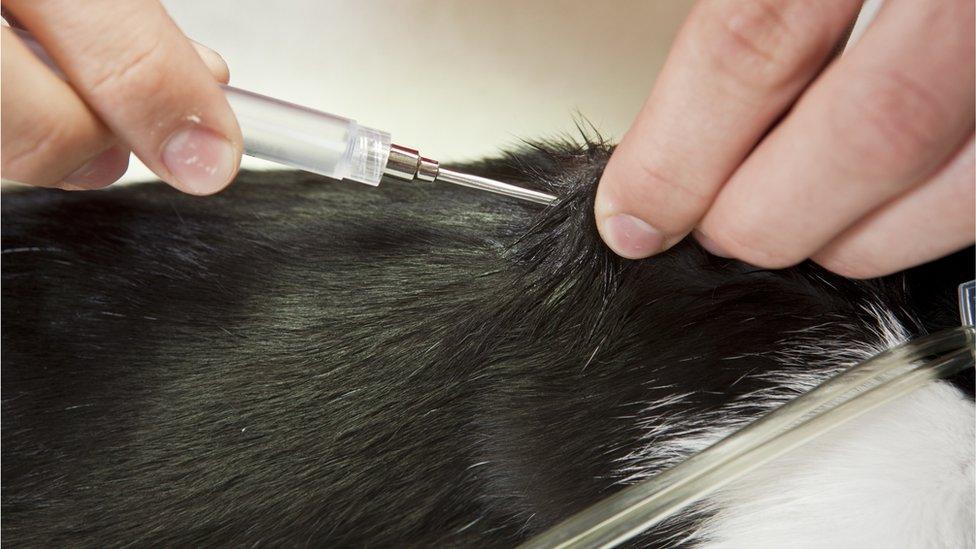
The process of microchipping a cat is a simple and straightforward one
The charity's Head of Advocacy & Government Relations Jacqui Cuff said: "Every day, we see how important microchipping is for cats and for the people who love them - whether it's reuniting a lost cat with their owner, identifying an injured cat, or helping to ensure an owner can be informed in the sad event that their cat has been hit and killed by a car.
"Microchipping is by far the most effective and quickest way of identifying lost cats and can help ease the pressure on rescue charities like Cats Protection."
Without a microchip, a lost cat will most likely end up being rehomed to a new home as there is often no trace of their original owner.
The government said its commitment to microchipping is part of a wider effort to build on "existing world-leading standards" and follows a number of recent announcements aimed at improving the welfare of pets, including tackling puppy smuggling and introducing new laws on pet abduction to crack down on theft.
Earlier this year the government worked closely with the Royal College of Veterinary Surgeons to introduce new guidance which requires vets to scan the microchips of healthy dogs to help ensure they are not put down unnecessarily.
- Published16 February 2021
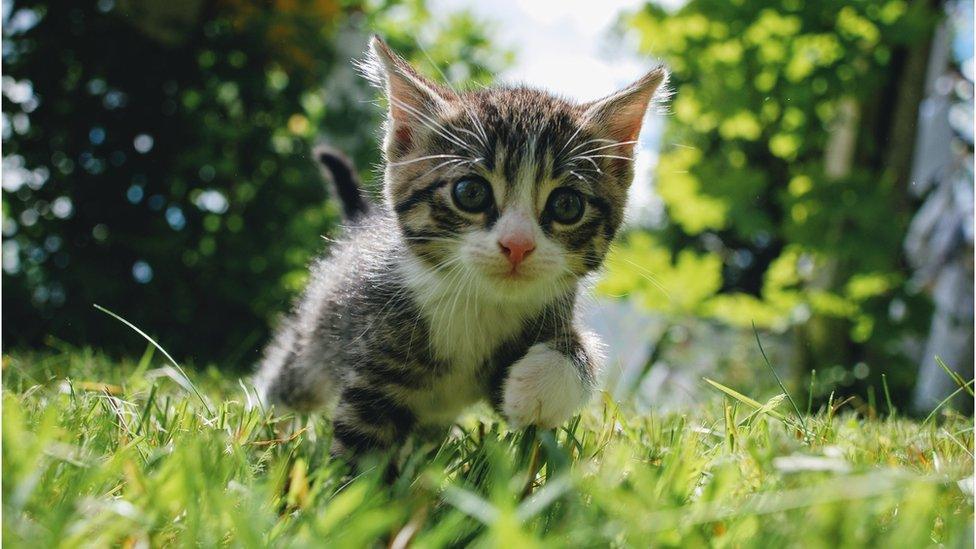
- Published8 August 2018
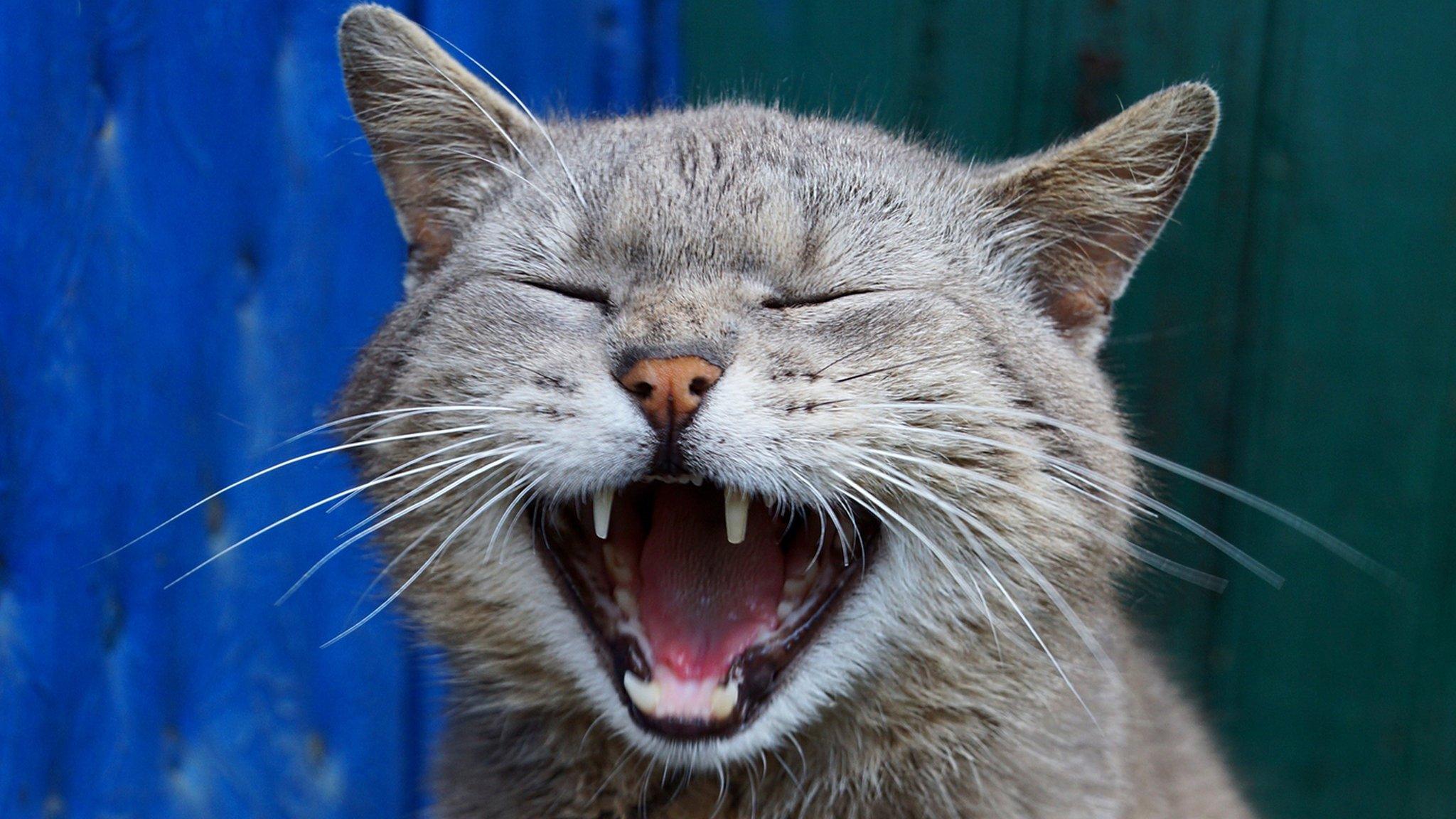
- Published19 November 2018
